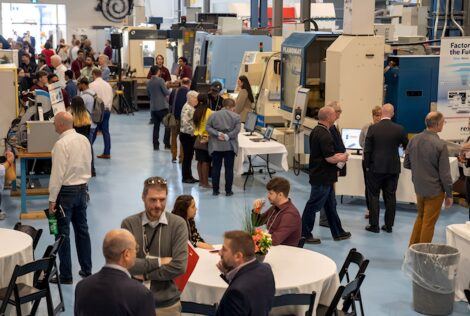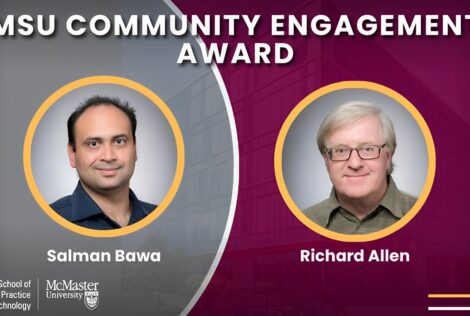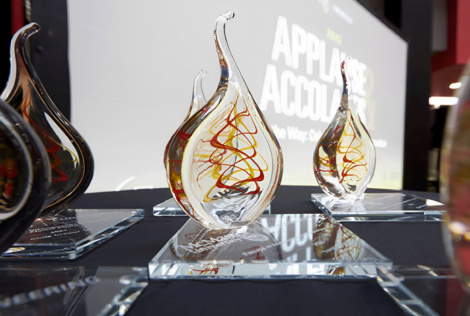
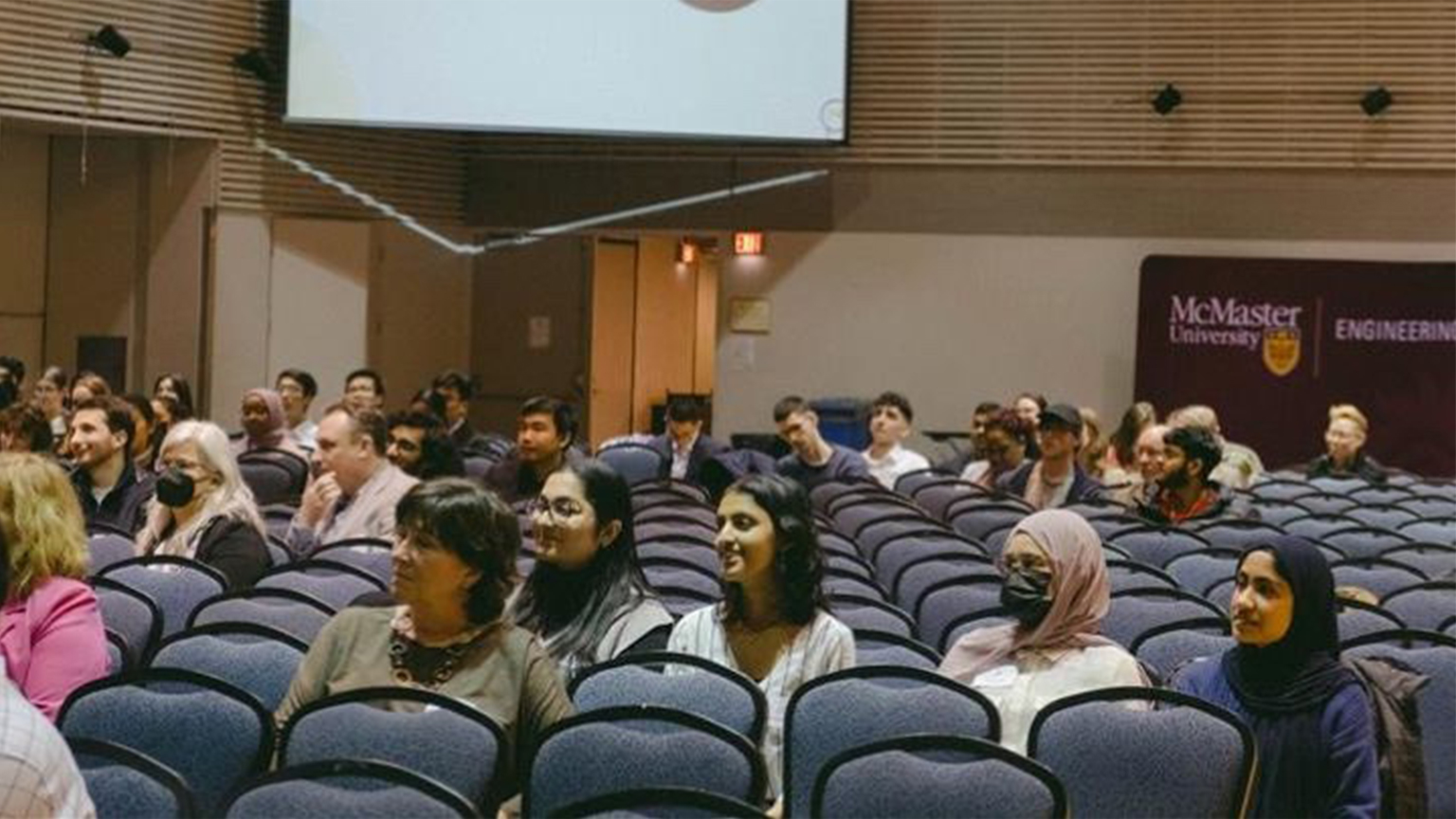
In early April, the MacChangers 2022-2023 cohort, in its 8th year, provided 85 students from all faculties the opportunity to propose collaborative solutions to complex challenges facing society. For the last three years MacChangers was hosted virtually due to COVID-19, making this year’s cohort the first to return in-person to participate in the program.
MacChangers is a co-curricular experiential learning program available to all McMaster students organized jointly by the Faculty of Engineering and the Office of Community Engagement.
The program helps students build their professional and transferable skills through workshops on a variety of topics, such as human-centered design, financial viability of solutions, prototyping, communication, teamwork, leadership and problem solving. Students then use these skills to develop unique and robust proposals to help solve local challenges within the community.
Whether you are an Engineering, Health Science or Humanities student or a student in your first or fourth year of study; you can participate in MacChangers. That’s the beauty of the co-curricular program, anyone can join and it is a unique environment where students can work with students outside of their chosen discipline and learn something new from their peers to come up with new ways to make the community of Hamilton a better place.
MacChangers runs over the course of the entire school year. Students are put into multidisciplinary teams and are paired with one of the many knowledgeable community partners and student mentors the program works with in order to help steer their solutions in the right direction.
Students work on one “How Might We” question in one of the four challenge areas which include Clean and Green, Supporting Local Businesses, Arts, and Culture, Infrastructure and Built Environment, and Healthy and Safe Cities. These Challenge areas are in alignment with Our Future Hamilton – Community Vision the City’s 25-year vision that helps us to envision how our city will move forward over the next 25 years.
Students presented their solutions in-person for the first time in three years on April 3 to over 100 community members, McMaster staff, faculty, students, and City of Hamilton employees at the 8th annual MacChangers Showcase, hosted at the Hamilton Convention Centre.
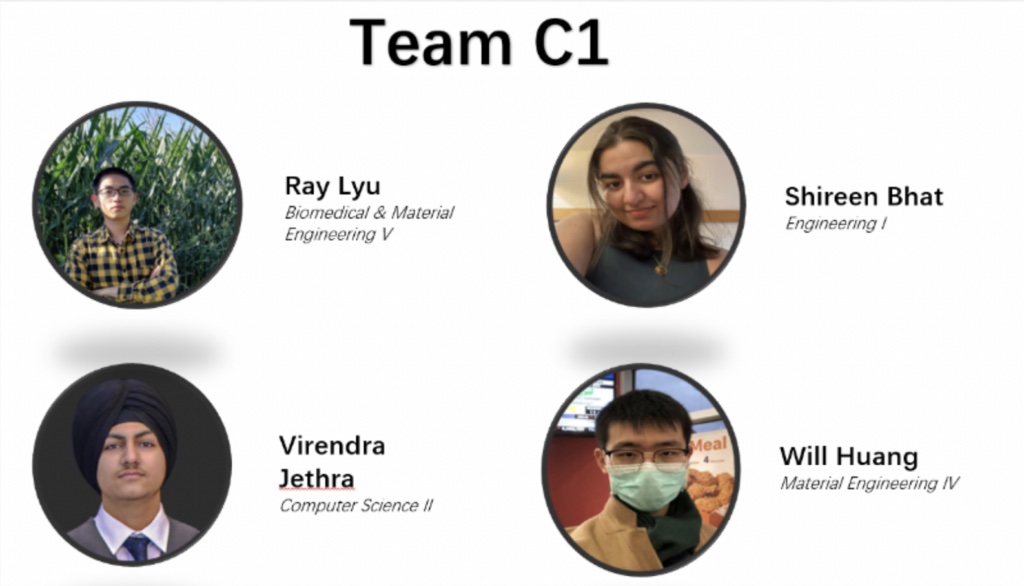
One of those proposed solutions was created by Ray, Virendra, Will and Shireen, a group of Engineering students whose solution was to develop an app in order to make greenspaces and conservation area properties more accessible for international students at McMaster University and newcomers to Canada. This “How Might We” question was posed in the Clean & Green Challenge area.
The Green Weekend App provides detailed information about parks, such as the available infrastructure, road map, and safety instructions. The app can recommend a green space based on the user input such as activities, type of place (forest or lake), transportation method and how the user can travel to the greenspace. Green Weekend supports multiple languages in order to make the app accessible for newcomers to Canada and McMaster’s international students.
The screenshots below demonstrate greenspaces and conservation areas near the user based on distance and score. The user can select their desired greenspace (forest, lake, trail, or waterfall) to receive that category’s list of recommendations.
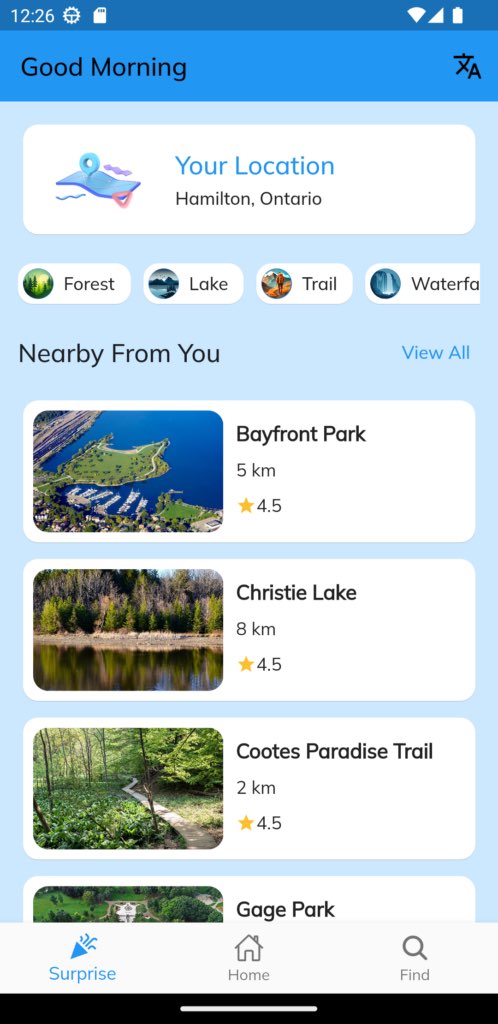
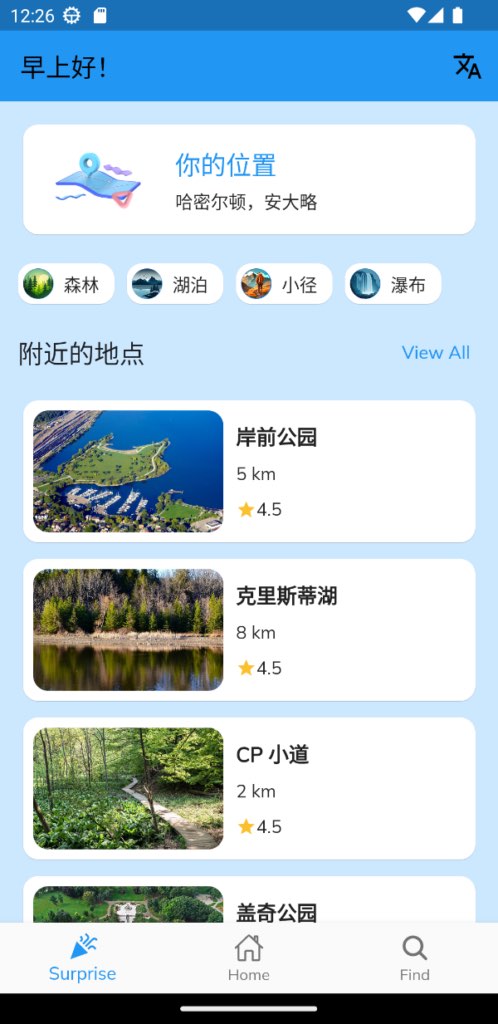
Green Weekend also pulls ratings and distance directly from Google, this function is designed for those who are unfamiliar with the greenspaces and conservation areas surrounding them. The app is able to provide the user with an initial first impression of the place and help them make an informed decision when it comes to choosing a destination for the weekend.
Clicking one of the greenspace listings will prompt the user to plan the trip or learn more information on the greenspace itself. The Google API will be used to provide route information as well as crowdedness data in order to eliminate some greenspace options that might be crowded at the time.
In addition, the app also features a “surprise me” function which generates a random greenspace location for the user to go to.
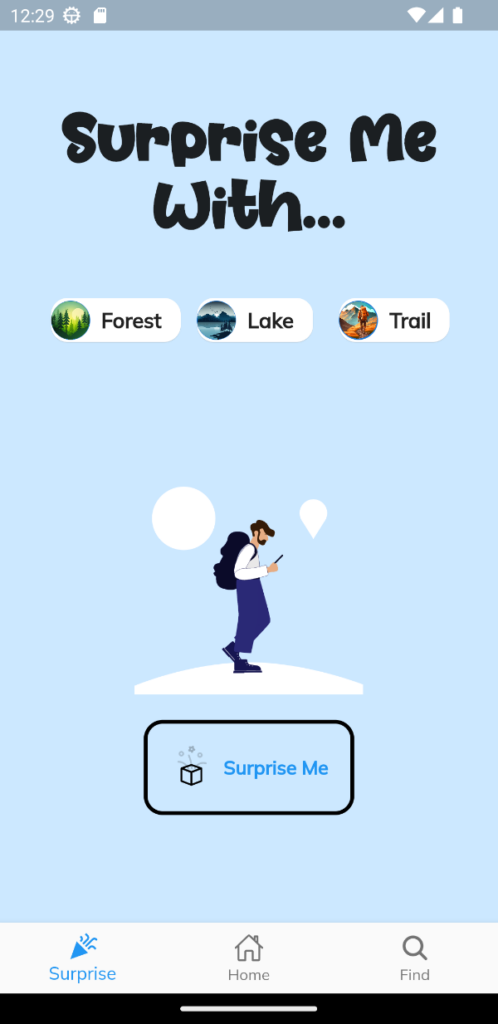
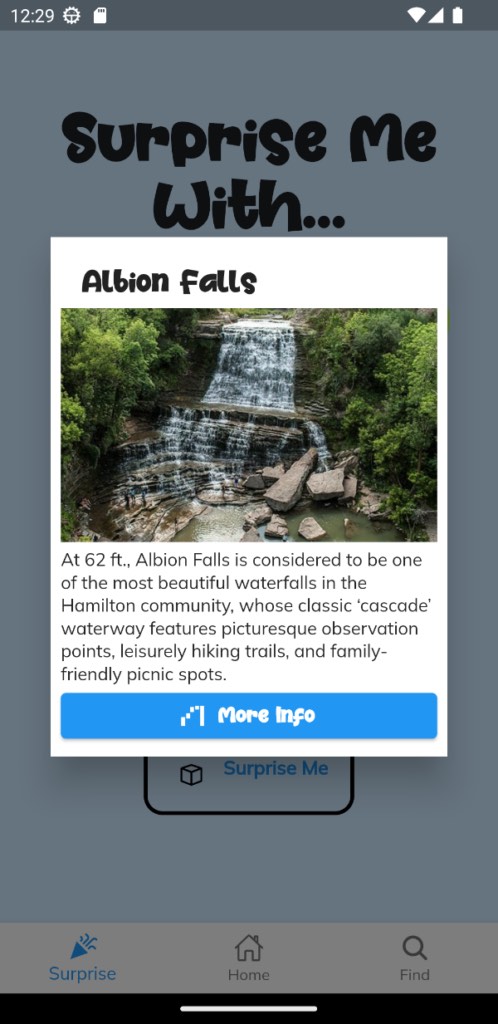
This is what group C1 had to say about their experience with MacChangers:
As a group of engineering students, we have developed strong problem-solving skills and MacChangers has provided us with an opportunity to connect with clients and solve a real-life problem using the skills we have developed during our academic career. By conducting research and talking to community members we have developed a more profound understanding of the problem and with assistance from MacChangers staff, we can develop the prototype and get more feedback to improve the solution. Hence, we are really grateful to the MacChangers team as well as the community members, Wayne Terryberry and Mark Cachia for this wonderful experience.
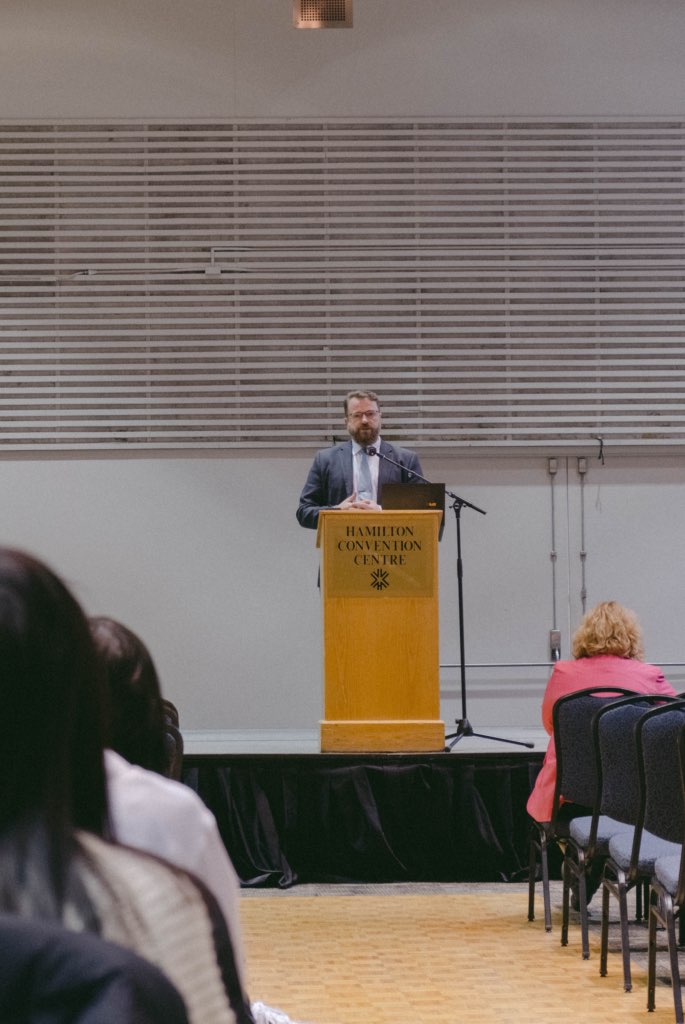
Director of MacChangers, Cameron Churchill, was impressed by this year’s cohort of MacChangers and is hopeful that their ideas will continue to flourish even after their time ends in the program.
I am just absolutely impressed that our MacChangers were all able to carve out the time to learn some new skills, make some new friends, come up with some ideas, and hopefully some of those ideas will carry forward.
Dean Heather Sheardown gave her closing remarks at the showcase and praised the groups for their hard work dedication to completing MacChangers program.
“This is exactly the kind of thing we want our engineering students to do, we want our engineering students to partner with students in business, humanities, social science and health science, and solve these really big multidisciplinary projects and when I see the work MacChangers students have done over the past year as just something extra they might do, and I think wow, this is absolutely incredible.”
Student testimonials:
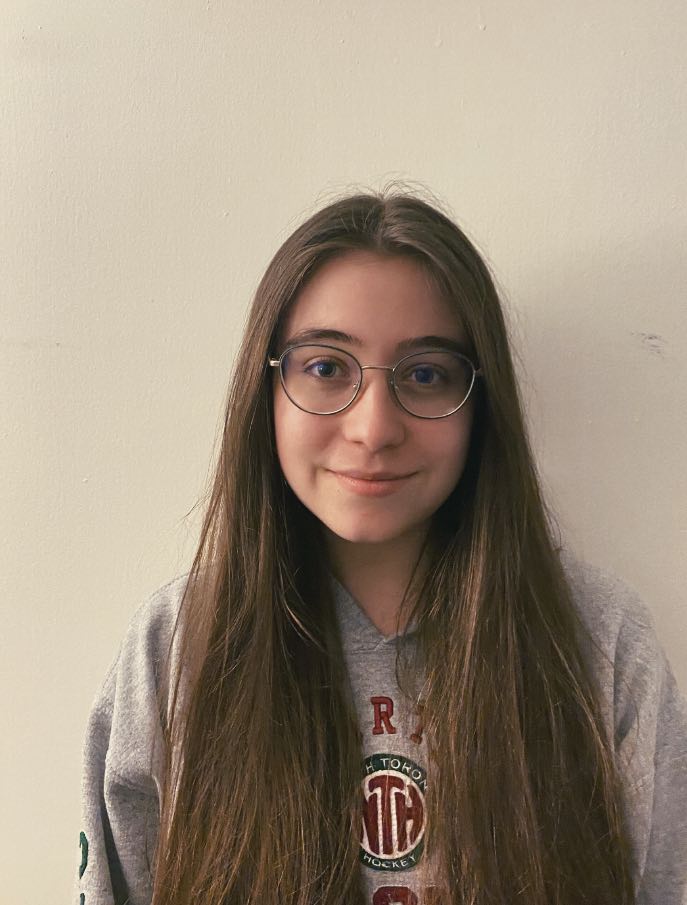
Maya Psaris (Science)
Challenge Area: Infrastructure and Built Environment
Project: Proposed a solution to creating an accessible study space in the Peter George Centre for Living and Learning (PGCLL) at McMaster University.
Being a part of MacChangers gave me many different opportunities to learn about the different perspectives needed when trying to come up with a solution that will benefit the whole community. I loved getting to meet with community members and members of our faculty to get feedback and insight from them, it has helped me improve my problem-solving skills!
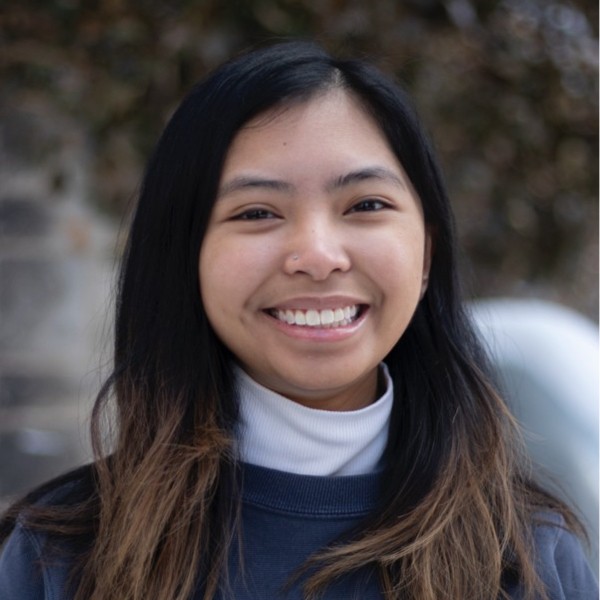
Edrine Marie Yumang (Humanities)
Other group members: David Gou (Health Sciences) and Laura Weiler (Engineering)
Challenge Area: Clean & Green
Project: Proposed a solution to improve sustainable practices in residences at McMaster.
Participating in MacChangers has been such a fulfilling experience. I learned how to solve problems with understanding and creativity, and worked with people from different backgrounds to make a positive difference!
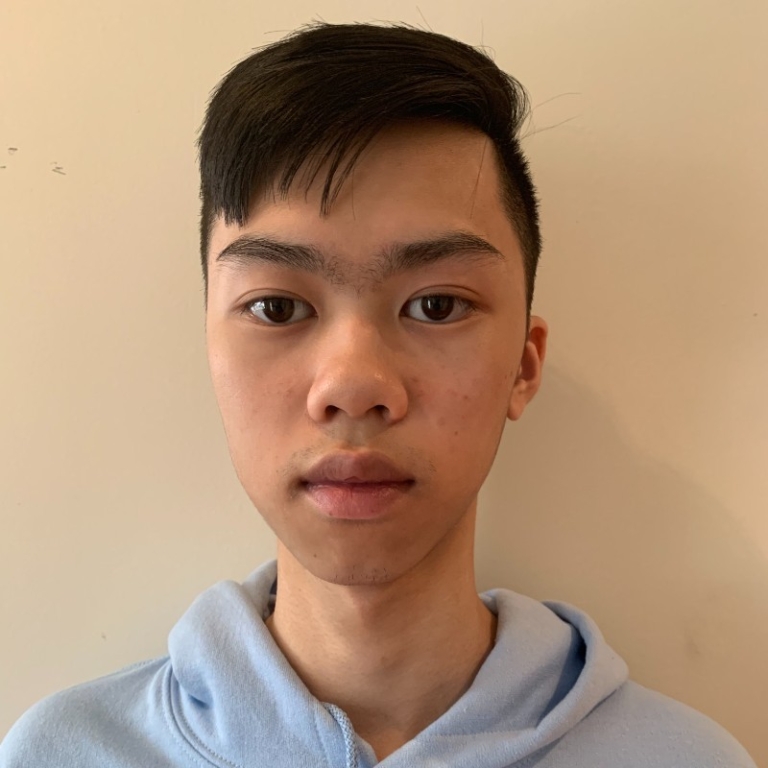
Timothy Leung (Engineering)
Other group members: Asadullah Muhammad (Engineering), Ujjwal Raj (Engineering), and Viransh Shah (Engineering)
Challenge Area: Supporting Local Businesses, Arts, and Culture
Project: Proposed a solution to help urban farming organizations get access to key resources such as volunteers and financial aid/government grants to support the production of more local and affordable food.
Macchangers is a place where we learn how to solve problems in a real-world setting. They take us through the entire process from start to end. I learned so much from it and recommend everyone to try it out.
Here are some projects featured at the showcase from other challenge areas:

